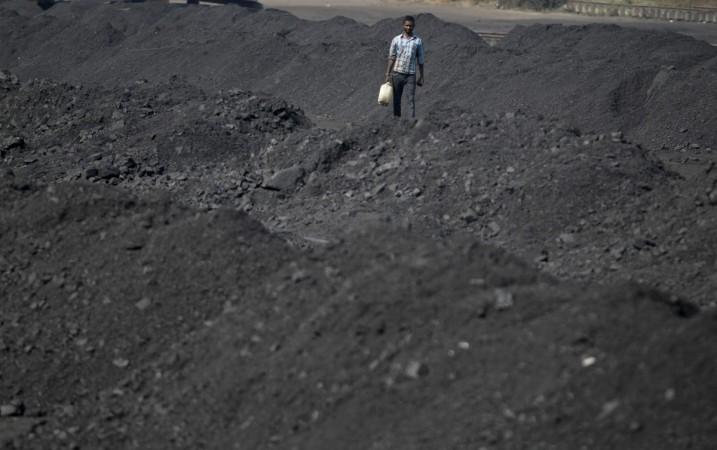
The government stands to gain an additional ₹12,600 crore on Day Three of the coal auction on Saturday, potentially swelling its kitty by nearly ₹1,45,000 crore from the 19 rounds in the first tranche and the three rounds thus far in the second leg, as per the latest data.
The Tara coal block in Chhattisgarh went to Jindal Power and the Dumri block in Jharkhand to Hindalco in the latest round. The third block on offer, Nerad-Malegaon in Maharashtra, went to Indrajit Power.
"Hindalco is highest bidder at ₹2,127 (per tonne) for Dumri and Jindal Power at ₹126 (per tonne) for Tara coal block," Coal Secretary Anil Swarup tweeted, as bidding ended.
This final bid cost works out to ₹9,800 crore for the Tara block and ₹2,100 crore for Dumri.
Indrajit Power bid the highest for Nared Malegaon at ₹660 per tonne - or a little over ₹660 crore.
Three more blocks will be put up for auction when the bidding starts on Sunday.
The auctions follow the Supreme Court's decision in September last to cancel the allocation of 204 coal mines allotted between 1993 and 2010.
Under the bidding process, participants are required to submit an initial financial bid along with the technical details.
On the actual date of the e-auction, the qualified bidder is permitted to anonymously submit as many final price offers as desired. While the highest bid can be viewed, the name of the bidder will not be divulged.
The auction has a clause that extractable reserves of the allotted coal mine cannot exceed 150 percent of the annual coal requirement of the specified end-use plant over a period of 30 years.
In the second round of the auctions, government has put up 15 blocks which are under the 'ready-for-production' category.
For Tara block, it was reverse bidding while for the other two it was forward bidding.
The auction is on the basis of tariff-based reverse bidding where the end-use is power generation, and forward bidding for production of steel, cement and generation of power for captive use.
While the criteria for calculating the floor price for bidding is based on state miner Coal India's (CIL) price of coal of the same grade, the auction also has a ceiling price for power sector bidders to keep the lid on power tariffs.
The Lok Sabha on Wednesday passed the coal allocation bill providing for vesting mining leases to successful bidders through a transparent bidding process.
The Coal Mines (Special Provisions) Bill, 2015, provides for allocation of coal mines and vesting the right, title and interest over mine infrastructure together with mining leases to successful bidders through a transparent bidding process. Before the house passed the bill, amendments sponsored by the opposition were negatived.
The bill replaces an ordinance brought by the government in the inter-session period.
Earlier, speaking at the school of international and public affairs New York's Columbia University on Monday Finance Minister Arun Jaitley said the yields of upto one lakh crore from the first few ongoing coal block auctions was proof of the improved governance brought in by the NDA coalition.
He added that the coal mine auctions would raise much more money, underlying the fact that what the Comptroller and Auditor General had said about coal block allocation losses of ₹1.86 lakh crore was indeed an "underestimation".
The CAG statement during the UPA government had led to a political uproar in the country and the opposition had painted the ruling party as being tainted with corruption.
The coal ministry on Sunday also received 107 applications from state-run undertakings like NTPC, SAIL and the Damodar Valley Corp for allocation of 43 coal blocks.











